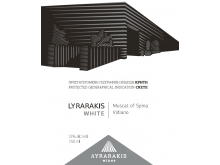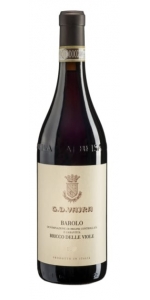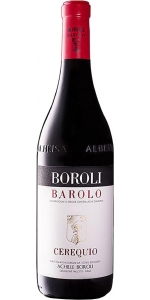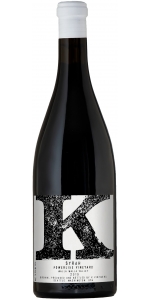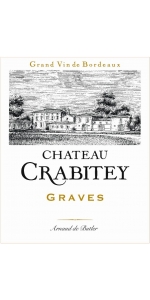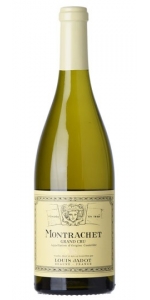Lyrarakis White 2019
| Country: | Greece |
| Region: | Crete |
| Winery: | Lyrarakis Estate |
| Grape Type: | Muscat of Spina |
| Vintage: | 2019 |
| Bottle Size: | 750 ml |
G.D. Vajra Bricco Delle Viole Barolo is made from 100 percent Nebbiolo.
The Barolo Bricco delle Viole shows the signature verticality of its vineyard. The wine is beautifully layered and - while restrained as it’s always the case in the youth of Bricco delle Viole - it also shows a complexity of layers with purple flowers, sweet spices and mineral tones. The palate is noble, with a refined acid spine and profound tannins that promise a long aging potential.
Among the historical vineyards of Barolo, Bricco delle Viole is the highest and the closest to the Alps. It rises from 400 to 480 meters above sea level, on the Western ridge of the village. Its name, “Hill of Violets”, originates from the flowers that blossom early here due to the perfect south exposure. Up above the fogs, Bricco delle Viole enjoys the earliest sunrise and the last sunset every day. Thanks to its vines dating back to 1949 and -now- 1931, a dramatic diuturnal temperature range and this pure light, Bricco delle Viole generates a sophisticated and profound Barolo DOCG of bright aromatics, chiseled tannins and subtle minerality. 2018 is a vintage that shows many nuances of Bricco delle Viole: beyond the signature verticality of this site, the wine offers high tones laced with mineral nuances and plenty of energy and youth.
Review:
A juicy Barolo, with vibrant acidity and a fluid profile that exudes cherry, raspberry, mown hay, mineral and eucalyptus aromas and flavors. Tight yet long, with excellent potential.
#26 Wine Spectator Top 100 of 2023
The last wine poured at my tasting at the winery is the G.D. Vajra 2019 Barolo Bricco delle Viole. With its high vantage point in the hills west of Barolo, Bricco delle Viole is a world apart in terms of soils (with Sant'Agata marl and fossils) and even harvest times. Slow and careful ripening like the kind that characterizes fruit in 2019 renders a very delicate and ethereal expression with floral tones, wild mint and licorice. This organic wine is solid in build and structure. Indeed, Isidoro Vaira remarks that Nebbiolo tannins have changed since the 1970s and 1980s.
-Wine Advocate 97+ Points
Jeweled in appearance, the 2019 Barolo Bricco Delle Viole may be the best wine I have tried yet from Vajra. Its gorgeous and alluring perfume of fresh roses is followed by a Burgundian, elegant red with incredible length and no harsh edges, fine and present tannins, and beautiful, graceful concentration. It is drinking well now, and I will be trying to get my hands on as much of this as possible. Drink 2025-2045.
-Jeb Dunnuck 97 Points
Argot Simpatico Ranch Chardonnay is made from 100 percent Chardonnay.
Powerful aromas of key-lime, white flowers, orange blossoms and a fierce, flinty, sauvage note define a wildly complex nose. Once in the mouth, gracefully pronounced textures coat the palate delivering an exotic interpretation of cool-climate Chardonnay character — lime peel, orange blossom, ginger and clove —lingerings deep into a vibrant finish.
Planted 1978. Shallow volcanic soils on the gently-sloped, south-facing foothills of Bennett Peak on Bennett Valley’s floor. One of California’s coolest Chardonnay vineyards. In the final year of 3-year draught cycle, Simpatico Ranch saw its earliest ever harvest and smallest crop, exposing a reserve of exoticism and minerality previously untapped. A watershed vintage for both the vineyard, and appellation. Night harvested by hand on 9/16, whole-cluster pressed direct to barrel; no settling to ensure maximum lees contact. Barrel fermented on heavy lees. Malolactic fermentation. 16 months in French oak, 50% new. Finished 2 months in steel tank, low Sulphur during barrel elevage.
Review:
There are 225 cases of the 2019 Chardonnay Simpatico Ranch, which is from a cooler, higher elevation site in Sonoma. Lots of peach, tangerine, honeyed minerality, and toasted hazelnuts all emerge from the glass, and while I don't think it matches the 2018, it's a brilliant Chardonnay offering medium to full-bodied richness, nicely integrated acidity, and a great finish. It's beautifully balanced and is going to keep for at least 5-7 years."
- Jeb Dunnuck (September 2021), 94 pts
Boroli Cerequio is made from 100 percent Nebbiolo.
The Boroli family is a family of entrepreneurs, with roots in Piedmont dating back to 1831. The family started their winemaking business in1997, when Silvano and Elena Boroli felt an ardent desire to step away from the pressures of their publishing business and reconnect to nature. Silvano and Elena grew the company until their son, Achille, stepped in to run the wine-growing and production business in 2012.
With the 2012 grape harvest Achille decided to radically change the methods used in vineyards and wineries, aiming for the highest quality in Barolo and its crus. He cut production levels, updated the winemaking technology, and focused on low intervention methods to raise the quality of the Boroli wines be on par with the finest Barolo wines.
About the Vineyard
The Cerequio cru lies just across the valley from the Boroli winery in the commune of La Morra and is considered one of the most prestigious sites in the Barolo DOCG zone. It is known to produce Nebbiolo wine of enormous elegance and finesse.
Wine Production
Cerequio is distinguished by a careful selection of grapes, precise destemming, and a long maceration with submerged cap.
Tasting Notes
A clear bright ruby color with very light garnet red reflections; intense and persistent aroma of red fruit with notes of plum and cherry. A pleasant aroma of wood is noticeable after the fruity aroma, anticipating the full taste of a great wine suitable for long lasting life. A succulent, rich, full-bodied and pleasant taste emerges after the woody one, with the presence of slightly ripe red fruit.
Food Pairing
Thanks to its viscosity and body, Barolo is the ideal wine to pair with elaborate dishes and dishes like truffle dishes, meat dishes, pasta with porcini mushrooms, game, and aged cheeses. Cerequio is also perfect with dry pastries or chocolate.
Review:
Precise and essential, it displays notes of lavender, hibiscus, violet, white pepper, lime, jasmine flowers, and elderberry. Medium body, perfectly ripe, fine-grained tannins, and a juicy finish that displays smoothness and relaxation. Beautiful right away, it will only improve from 2024 onwards. One of the best Barolos tasted in the 2019 vintage.
-WineCritics.com 96 Points
Charles Smith K Vintners Powerline Estate Syrah is made from 100 percent Syrah.
Friendly, approachable and vivacious, yet also dark and mysterious. Black cherry, allspice, black ash, and orange blossom. Thyme and flint with ark fruit, cedar, kelp, black pepper, juniper, crushed rock, and tons of complex floral notes. Fear not, embrace it.
While just bottled a week before this tasting, the 2019 Syrah Powerline Vineyard certainly wasn't showing any worse for it, offering a stunning bouquet of ripe red and black fruits as well as white pepper, sandalwood, tobacco, and new leather. Pure, medium to full-bodied, and vibrant, with supple, polished tannins, this brilliant Syrah is going to keep for 10-12 years, if not longer.
-Jeb Dunnuck 97 Points
Crabitey Graves Rouge is made from 47% Cabernet Sauvignon, 47% Merlot and 6% Petit Verdot.
Château Crabitey Graves Rouge presents a dark cherry color with nice ruby glints. The nose is fresh, revealing a wide range of red fruits flavors, along with a mellow and elegant oak presence. The mouth is powerful and round, supported by smooth and subtle tannins. The wine reveals a good length on the palate, with fruity and slightly oaky notes.
Pairs well is grilled lamb, beef stroganoff and hard cheeses.
Review:
"The 2019 Crabitey is impressive, just as it was en primeur. Bright redtoned fruit, white chocolate, flowers, gravel and mint give the 2019 quite a bit of freshness and energy that builds over time. This mid-weight, wonderfully expressive Graves is a winner.- Antonio Galloni"
- Antonio Galloni's Vinous (January 2022) 91 pts
Louis Jadot Montrachet Grand Cru is made from 100 percent Chardonnay.
Le Montrachet is situated to the south of the Côte de Beaune, on both villages of Puligny Montrachet and Chassagne Montrachet (like the Batard Montrachet Grand Cru).
The terroir is extremely chalky with a lot of stones, perfectly drained and easy to overheat with south-south-eastern exposition.
The Montrachet is produced with Chardonnay
Grapes are harvested by hand and put in small cases in order not to damage the fruits. Grapes are pressed softly, they ferment in oak barrels produced by our cooperage. 1/3 are new barrels. Aging usually lasts 15 months on fine lies before bottling.
Review:
Aromas of buttered toast, honeyed peaches, white flowers and mint introduce the 2019 Montrachet Grand Cru (Maison Louis Jadot), a full-bodied, layered and enveloping wine that's satiny and sumptuous, with lively acids and fine depth at the core. While I'd give the nod to the stunning Demoiselles as Jadot's best white wine this year, this Montrachet—purchased from the Chassagne-Montrachet side, from the house's usual source—is undeniably promising.
-Wine Advocate 94-96 Points
Lyrarakis White is made from 75% Muscat of Spina and 25% Vidiano.
Description: An aromatic white wine with an exciting, crispy mouthfeel, vinificated by combining indigenous and international grape varieties, which have perfectly acclimatized on our island.
Tasting Notes: Bright and lively pale yellow color. Mature aromas of grapefruit and stone fruit enhanced by a persistent presence of rose petals. Elegant and fine balanced with pleasant acidity and plushy finish.
Alcohol: 12% ABV
Acidity: 6.39 g/L
pH: 3.25
RS: 1.02 g/L
Region: Alagni area - central Crete
Soil: Clay - loam
Pruning Technique: Cordon trained, spur pruned
Altitude: 480m above sea level
Irrigation: Not irrigated
Yield: 9tn/ha
Varieties: 75% Muscat of Spina and 25% Vidiano
Winemaking: Hand-harvested in the last week of August (exact harvest time defined by berry sensory assessment, to obtain the optimum taste and aromatic balance). Grapes are vinificated separately. After de-stemming, the almost uncrushed berries remain in the press under reductive conditions for about 8 to 10 hours. Blending was performed using tasting results, choosing the ones with the best characteristics of texture and freshness. Matured on fine lees for 3 months.
Food pairing: Sea food, Thai or spicy cuisine and a large variety of salads.
The Lyrarakis Estate is a family winery which has been producing high quality wines since 1966 with a strong focus on rare local varieties and producing single variety wines.
The family is credited with the revival of two ancient Cretan varieties, Dafni and Plyto while a third “vineyard treasure”, the indigenous Melissaki, is recently added to the credits.
Surrounded by the idyllic setting of the vineyards and the Lassithi mountains we offer you the opportunity to enjoy nature and discover local varieties and wines distinguished by the uniqueness of their origin and heritage.
The founders of the Lyrarakis Estate decided 40 years ago to get actively involved with winemaking in their native land. The company now known as GEA (Alagni Agricultural Enterprises) was founded in 1966. The family has always used its privately owned vineyards. At that time, the dominant varieties included Vilana, Kotsifali and Mantilaria. After careful selection of the Vilana strain, the first organised planting of this particular variety was completed and served to supply the farmers of the region. But the family’s grape-growing did not stop there. In the late 1980s, there was an attempt to save two rare native varieties, Dafni and Plyto, from the Phylloxera blight. Efforts were ultimately successful as indicated by the wines of the same name first made available by the Lyrarakis company in the early 1990s.
The village of Alagni, from which the Lyrarakis family originated, is located in the heart of Heraklion Prefecture, in the most mountainous area of Crete’s Peza region with the extensive wine-producing tradition (stone-carved wine presses from the Venetian era are scattered throughout the region).
Today, the family vineyard is 15 hectares (37 acres) and produces seven single-variety wines from native grape varieties: The selection of products is rounded off with combined vinification of native and foreign varieties, the best-known of which include Kotsifali-Syrah and Cabernet-Merlot.
- back
Matthews Winery Columbia Valley Cuvee is made from 65% Merlot, 27% Cabernet Franc, 8% Malbec.
The 2021 Columbia Valley Cuvée sparkles with purple and deep garnet in the glass. Meadow flowers, fresh red berry, black plum, and cocoa powder aromas exhilarate leading to flavors of morello cherry liqueur, cardamom, mountain blackberry, and licorice snaps. This merlot-dominant blend is plush and weighty on the palate with powdery tannins. Dark stone fruits and dusty minerality coat the palate for a long, seamless finish.
Reviews:
A handsome blend, structured and polished, with expressive black cherry flavors accented by tarragon, mocha espresso and toasty spices that sail toward refined tannins. Merlot, Cabernet Franc and Malbec. Drink now through 2031.
-Wine Spectator 93 Points
This Merlot-based blend is a part of the Matthews tradition. Wildly fruity aromatics with whole berries, destemmed aromas driven by red berries, mountain blueberries, and a touch of green peppercorn and mocha dust. A streak of graphite underlines red berries, early season blackberries and a savoury herbal character that mingles complexity with fresh ripe fruits.
-Decanter 93 Points
Pearmund Cellars Ameritage Red is made from 33% Cabernet Sauvignon, 30% Merlot, 17% Malbec, 10% Cabernet Franc, 10% Petit Verdot.
Cherry, currant, and herbaceous flavors. Balanced tannins with a lingering finish. Full-bodied and complex. Limited production.

